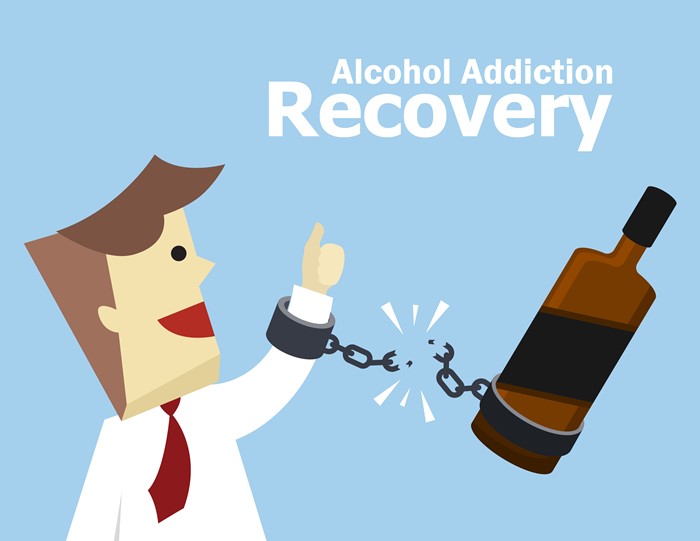
Alcoholism has severe negative repercussions to your mental and physical well-being that lasts for a lifetime. This type of substance abuse is characterized by dependence on liquor that leads to cravings for the drink or for the buzz that it brings. Rehabilitation from this disorder is a continuous process that should continue even until you’re done with your treatment program to prevent relapse.
Here are some tips that can help you or your loved ones stay away from alcohol for good:
1. Be Part of an Organization
An excellent support system surrounds you with people who are on the same journey as you towards sobriety. When you join a treatment program, such as the one from Nexus Recovery Services Treatment Center, you have group therapy sessions that allow you to share and gain insights on how other people overcame significant hurdles.
Once the program ends, you should find a sober group who can motivate you to continue your path to recovery. Moreover, it’s crucial that you don’t meet with your old friends yet especially those who continue to drink excessively as this will worsen your cravings and make it more difficult for you to stay on track.
2. Avoid Situations that’ll Tempt You
Identifying your trigger points objectively can prevent you from diving into situations that attack your vulnerability. For example, if you know that you can’t resist having a drink while watching a sports game at your local pub, it may be best to cheer for your team at home and have a buddy stay with you to ensure you don’t grab a bottle of beer.
There are three categories for drinking triggers:
- Environmental – These triggers are people, places, and events that can remind you of drinking. This can include meeting with old drinking friends, going to your favorite bar or club, and even social events with free-flowing alcohol such as house parties, birthday celebrations, and music festivals.
- Re-Exposure – While this can be related to places or locations that you go to where you’re exposed to people who are drunk, this type of trigger can also be witnessed through commercial ads on TV or movie scenes. It’s very challenging to avoid because society is now more open to drinking and doesn’t condemn it anymore.
- Stress – Stressful moments are potential triggers for alcoholism relapse. This can include feeling strong emotions like fear, anxiety, and guilt which are common withdrawal symptoms. Overwhelming physical pain can also weaken your resolve and lead you to go back to your previous ways.
Knowing these triggers can help you avoid situations where they’re present. Don’t be ashamed to explain to your old pals why you’re not going to join them for a while. You can also request your family and friends not to consume any type of liquor if you’re in the vicinity.
3. Learn a New Hobby
Prior to joining a treatment program, your lifestyle may have consisted of activities that revolve around drinking and getting drunk. One way to make giving up alcohol easier is to find a replacement for the things that you used to do. This way, you can focus your energy and extra time on a diversion that’s beneficial to your mental and physical well-being.
Five hobbies you can try in sobriety are:
- Volunteering at Animal Shelters – Being around animals even for a short time each week can boost your mood. Visiting animal shelters in your area can decrease depression and anxiety, which a lot of recovering alcoholics struggle with during the treatment process.
- Yoga and Meditation – Understanding that your mind and body are connected and strengthening that bond can help you win the battle with alcohol addiction. Yoga and meditation train you on various techniques that you can use when intense cravings strike.
- Reading – An enthralling book immerses you in a different world with interesting characters and compelling storylines. It can help you forget your inner turmoil for a little while. Plus, while reading may be a way to relax, it also stimulates your brain with critical thinking.
- Enjoying the Outdoors – Whether you go for a run or leisurely bike through a nearby park, getting a burst of fresh air can invigorate your mind and body. It can improve your physical health and help you curb your cravings.
- Writing – Starting a journal about your journey can be cathartic. Jotting down your thoughts and feelings be a way to make sense of it all even amidst the chaos that you may be experiencing on the inside. Moreover, a diary allows you to track your progress and motivate you when you see the milestones you’ve achieved.
4. Be Kind to Yourself
The road to recovery is not a straightforward feat. You’ll feel physical, mental, and emotional pain like you’ve never experienced before. You’ll also be in a constant battle within yourself as well as with external triggers. Don’t be too hard on yourself in case you let your guard down and drank a bottle of liquor.
Berating yourself is neither beneficial to you and your recovery. Instead, here are the things that you can do when this happens:
- Take a Step Back – Detach yourself from the situation so that you can see it more clearly and without bias.
- Assess Prior Events – Examine the moments that led to the dreadful instant when you reached for that bottle and downed the drink.
- Identify Where It All Went Wrong – Pinpoint the exact moment when you tipped over the edge without conscious thought of the repercussions of your actions.
- Plan Accordingly – Map out the steps you can take right after this realization such as talking to your mentor and act on them immediately.
It’s normal to feel disappointed with yourself after a momentary lapse of judgment. However, you shouldn’t make this into a big deal. You ought to think of this temporary setback as a lesson in strengthening your resolve so that, the next time you face a similar situation, you can say no to alcohol without difficulty.
Conclusion
Your recovery begins when you wholeheartedly enroll yourself in a treatment center where professionals can help you regain control of your life. It continues even after the program ends as you make the choices that can either facilitate your growth or impede your progress. Always remember that the steps you take right now can determine your future.
About The Author:
 Nicole Andrews is a licensed psychotherapist who has been contributing articles to Nexus Recovery. With years of clinical experience, Nicole understands the challenges brought by addiction and the process of recovering from it. This is the reason why Nicole has been producing articles which are focused on the education and treatment of different addictions. During her spare time, Nicole loves to cook and read books.
Nicole Andrews is a licensed psychotherapist who has been contributing articles to Nexus Recovery. With years of clinical experience, Nicole understands the challenges brought by addiction and the process of recovering from it. This is the reason why Nicole has been producing articles which are focused on the education and treatment of different addictions. During her spare time, Nicole loves to cook and read books.




